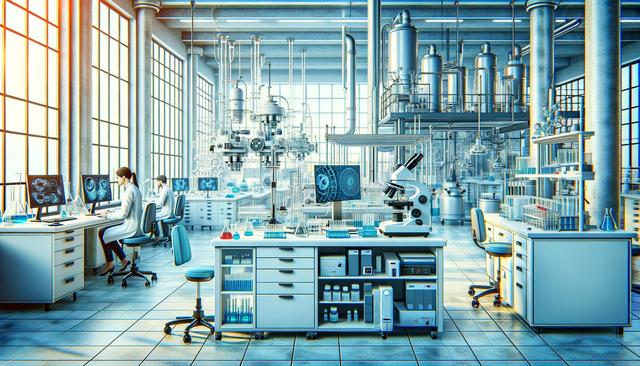Why Lab Techs Are in High Demand
The healthcare industry continues to evolve rapidly, and with it, the demand for skilled laboratory technologists is surging. As the need for accurate diagnostics and efficient lab work increases, the role of the lab tech becomes more essential than ever before. Lab techs are responsible for conducting complex tests on blood, tissue, and other bodily fluids, which aid physicians in making informed decisions about treatment and care. These professionals are not only vital to hospitals but also to research facilities, medical laboratories, and public health organizations.
Several factors contribute to the growing demand for lab techs, including:
- An aging population requiring more medical services
- Advancements in medical technology and testing methods
- Expansion of healthcare access in underserved areas
- Increased focus on preventive care and chronic disease monitoring
As a result, laboratory technologist jobs are becoming more prevalent across various regions, offering numerous career opportunities for individuals with the right training and certification.
The Role and Responsibilities of a Lab Tech
Laboratory technologists are central to the diagnostic process. Their work is often behind the scenes, but it directly impacts patient care. They prepare specimens, operate sophisticated laboratory equipment, and analyze data to detect abnormalities or confirm diagnoses. Their precision and attention to detail are crucial in identifying issues ranging from infections to chronic diseases.
Common responsibilities of lab techs include:
- Collecting and preparing biological samples
- Conducting chemical, hematological, and microbiological analyses
- Ensuring the accuracy and reliability of test results
- Maintaining and calibrating laboratory instruments
- Adhering to safety and quality control protocols
Given the critical nature of their work, lab techs must be well-trained in both theoretical knowledge and practical application. Their expertise supports doctors in making timely and accurate medical decisions.
Education and Certification Requirements
Pursuing a career as a laboratory technologist typically begins with obtaining a degree in medical laboratory science or a related field. Most entry-level positions require at least an associate degree, although many employers prefer candidates with a bachelor’s degree. In addition to formal education, certification from a recognized professional organization is often necessary to meet industry standards and increase employability.
Key academic and professional steps include:
- Completing an accredited laboratory science program
- Gaining hands-on experience through internships or clinical rotations
- Passing a certification exam offered by a credentialing body
- Continuing education to stay updated on new technologies and practices
Certification not only validates a lab tech’s skills but also demonstrates a commitment to maintaining professional standards, which is especially important in a field where accuracy and reliability are paramount.
Career Pathways and Advancement Opportunities
Laboratory technologist jobs offer more than just entry-level employment—they can lead to a wide range of career advancements. With experience and additional education, lab techs can move into supervisory roles, specialize in areas such as molecular biology or cytotechnology, or transition into research and development. Some may also choose to go into teaching or laboratory management positions.
Possible career progression paths include:
- Senior or lead technologist roles
- Specialist positions in areas like immunology or histotechnology
- Clinical laboratory manager or supervisor
- Quality assurance analyst in medical testing labs
- Research assistant or clinical trial coordinator
These pathways not only offer higher earning potential but also allow lab techs to contribute more deeply to the medical and scientific communities.
Job Outlook and Market Trends
The job outlook for laboratory technologists remains strong, with steady growth projected over the next decade. According to labor market data, employment in this field is expected to grow faster than the average for all occupations. This trend is fueled by the ongoing need for diagnostic testing, especially in light of public health concerns and the increasing complexity of modern medicine.
Market trends influencing this demand include:
- Wider adoption of precision medicine and genetic testing
- Expansion of diagnostic services in outpatient and community settings
- Greater use of lab data in preventive healthcare strategies
- Rising need for skilled professionals in rural and underserved areas
These developments suggest a positive employment landscape for current and aspiring lab techs, making it a compelling career choice for those interested in healthcare and science.
Conclusion: A Promising Future in Laboratory Science
For individuals drawn to a healthcare career that combines science, technology, and patient care, laboratory technologist jobs offer a fulfilling and stable path. As the demand for diagnostic services grows, so too does the need for trained professionals who can deliver accurate, timely results. Whether you’re just starting out or considering a career change, the field of laboratory technology presents numerous opportunities for meaningful work and long-term growth. Investing in the required education and certification can open doors to a well-regarded profession that plays a critical role in modern medicine.



Leave a Reply